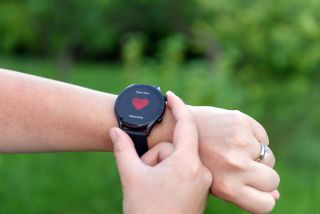Anxiety
Is Body Awareness Causing Your Anxiety to Skyrocket?
Too much focus on body sensations can be a problem for some anxiety issues.
Posted September 28, 2023 Reviewed by Jessica Schrader
Key points
- Many people with anxiety may focus excessively on their body sensations.
- Hyperfocus on one's body can reinforce anxiety and worsen it in the long run.
- There are strategies to reduce excessive body awareness.

If you struggle with anxiety, do you also pay a lot of attention to your body sensations? While it is important not to be oblivious to what is happening in your body, people who struggle with anxiety tend to be overly aware of their body sensations. Here are some examples of what I typically see in my practice:
- Tonya has health anxiety and finds that she is aware of any unusual symptoms in her body. She fears missing something serious and therefore believes she needs to be responsible by constantly monitoring her body. These behaviors worsen when she hears about someone she knows or a celebrity having a disease or dying unexpectedly.
- Peter has frequent panic attacks and often thinks he is having a heart attack when he panics. As a result, he tends to be aware of his heartbeat and focuses much of his attention on it. He recently started wearing a watch that monitors his heart rate, which he frequently checks.
- Britney has anxiety in social situations. She desperately does not want to appear nervous to others, so she frequently tunes into her body to ensure she is not blushing, sweating, or showing signs of nervousness. When she notices these symptoms, it makes her even more anxious.
Why Is Excessive Body Awareness a Problem?
For those who struggle with anxiety issues, excessive body focus can reinforce anxiety and make things worse. It is almost as if you are telling yourself: I must constantly focus on my body to keep myself safe. Therefore, the focus on the body is maintaining the notion that catastrophe is looming right around the corner.
- In the health anxiety example, Tonya has a sense of increased responsibility and fears that she might miss something serious without her excessive body focus.
- For Peter, who experiences panic attacks, there is an underlying belief that he cannot handle them and that they are dangerous, so he needs to be on alert.
- With Britney’s social anxiety, she believes that showing nervousness could lead to a horrible social outcome.
In addition, because anxiety often presents itself in physical ways, this anxiety about the symptoms can amplify symptoms, leading to more catastrophizing. It becomes difficult to distinguish between anxiety and a valid physical problem.
Also, excessive focus on body symptoms can make the symptoms more intense just from the focus on it. Thus, this extreme awareness keeps people trapped in the grips of anxiety.
A Healthier Way
Many with health anxiety will talk about their fears that they will miss something important if they ignore their body. In addition, they are often driven to do something about their symptoms, such as searching the internet or immediately calling the doctor.
It is vital not to be oblivious to changes in your body but also not to hyperfocus on it. It can take work to balance those two principles. One thing to do when you are experiencing an unusual body sensation is to ask yourself if this requires immediate or urgent attention and, if so, to go to an ER, urgent care, or call a doctor. If not, ask yourself if you can wait a certain period (e.g., a few hours, a few days, or even a week) and then revisit. Oftentimes, people realize that these symptoms just go away on their own.
What to Do About Excessive Body Awareness
If you agree that you are paying too much attention to your body, here are some steps you can take:
- Be aware of when you are being overly aware. It’s good to start to be mindful of when you focus too much on your body. Are there certain situations or activities that cause you to be hyperfocused on your body?
- Work on redirecting your attention outside of yourself. When you notice that you are focusing too much on your body symptoms, see if you can turn your attention outward to something else in your environment (e.g., a picture on the wall, the sounds coming from outside, the texture of your chair, etc.). Doing mindfulness exercises focusing on sounds can be a helpful way to retrain the focus on your attention.
- Consider weaning off devices. If you are using devices like a watch to monitor heart rate or a pulse oximeter and a doctor has not recommended using them, you might want to consider stopping using them regularly, as they might reinforce your anxiety.
- Talk to your doctor about your concerns. Talking to a doctor about your anxiety and excessive body focus can be helpful. You can ask them about your actual risks for issues you are concerned about. If you don’t have a doctor that you feel comfortable talking to, consider getting a referral from someone else for a doctor with a pleasant bedside manner.
- Consider whether you could benefit from extra support. If your anxiety is too challenging to manage, you might benefit from seeing a therapist specializing in anxiety. Cognitive behavior therapy, in particular, can be beneficial for anxiety-related issues.
To find a therapist, please visit the Psychology Today Therapy Directory.


